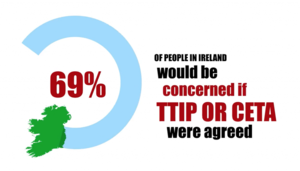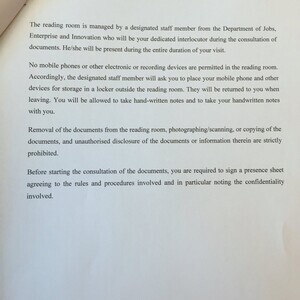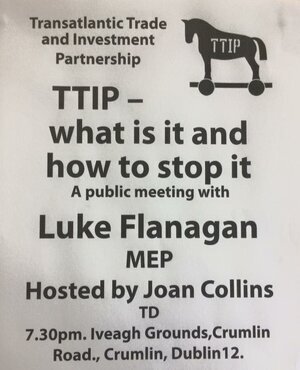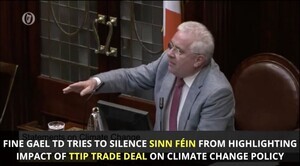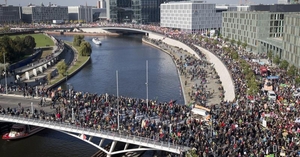Brian Hayes, Fine Gael MEP
Farrel Corcoran’s article contains arguments concerning the Transatlantic Trade and Investment Partnership (TTIP) talks and coverage of TTIP that simply do not stand up to scrutiny.
Mr Corcoran argues that the proposed deal would allow the use of “carcinogenic pesticides” in foods. Let me be clear, nothing could be further from the truth. But that doesn’t stop protectionists deliberately misleading the public.
Again and again, European Commissioner Cecilia Malmström has said no EU trade agreement will ever lower our level of protection of consumers or food safety.
Both sides in the trade talks are crystal clear that importation of hormone treated meat will not happen. Yet those against trade have repeated something that they know was never on the agenda of the EU.
The precautionary principal, the EU’s guiding principal on food and safety standards remains unaltered.
When it comes to Ireland’s sovereignty the position couldn’t be clearer. The first item agreed in a joint declaration by the lead negotiators was that TTIP does not prevent governments, at any level, from providing or supporting services in areas such as water, education, health, and social services.
This has not stopped those against the talks framing the process as a kind of new conspiracy where the corporate world, aided and abated by the European Commission, has hatched a masterplan to impoverish us all by – wait for it – by increasing trade between the EU and the US.
He bemoans the fact, according to him, that there has been “little” media coverage. Come on, where has Mr Corcoran been for the past number of years?
Didn’t The Irish Times give him carte blanche in his article to peddle the usual distortions about TTIP. What’s he moaning about? You could nearly hear the tut-tutting from the opinion page.
Then he says there has been little civil society engagement and “no national debate” on TTIP. Well a debate requires a fair amount of time to both sides to make the case.
But it also requires an honest engagement with the facts rather than hyped, over-the-top and utterly sensationalist comments from Mr Corcoran and others.
TTIP is not a done deal, it’s a talks process and it’s ongoing. And I wouldn’t be holding my breath that it will come to an end anytime soon.
It’s caught up with elections in the US and Europe.
From Donald Trump to Nigel Farage, and now to Mr Corchtoran [sic], the line-up of populists against more trade is really quite breathaking. And this against a backdrop of high European unemployment and falling wages.
The sensible thing to do is to see what comes from TTIP at the end of the negotiation. Look at the issue in the round – the pros and cons – and then make a decision. I repeat there is no agreement between both sides, and there may never be.
Brian Hayes MEP
Donnybrook,
Dublin 4.
Media, democracy and trade agreements (Irish Times letters page)
Previously: Luke’s TTIP
Leah Farrell/Rollingnews



